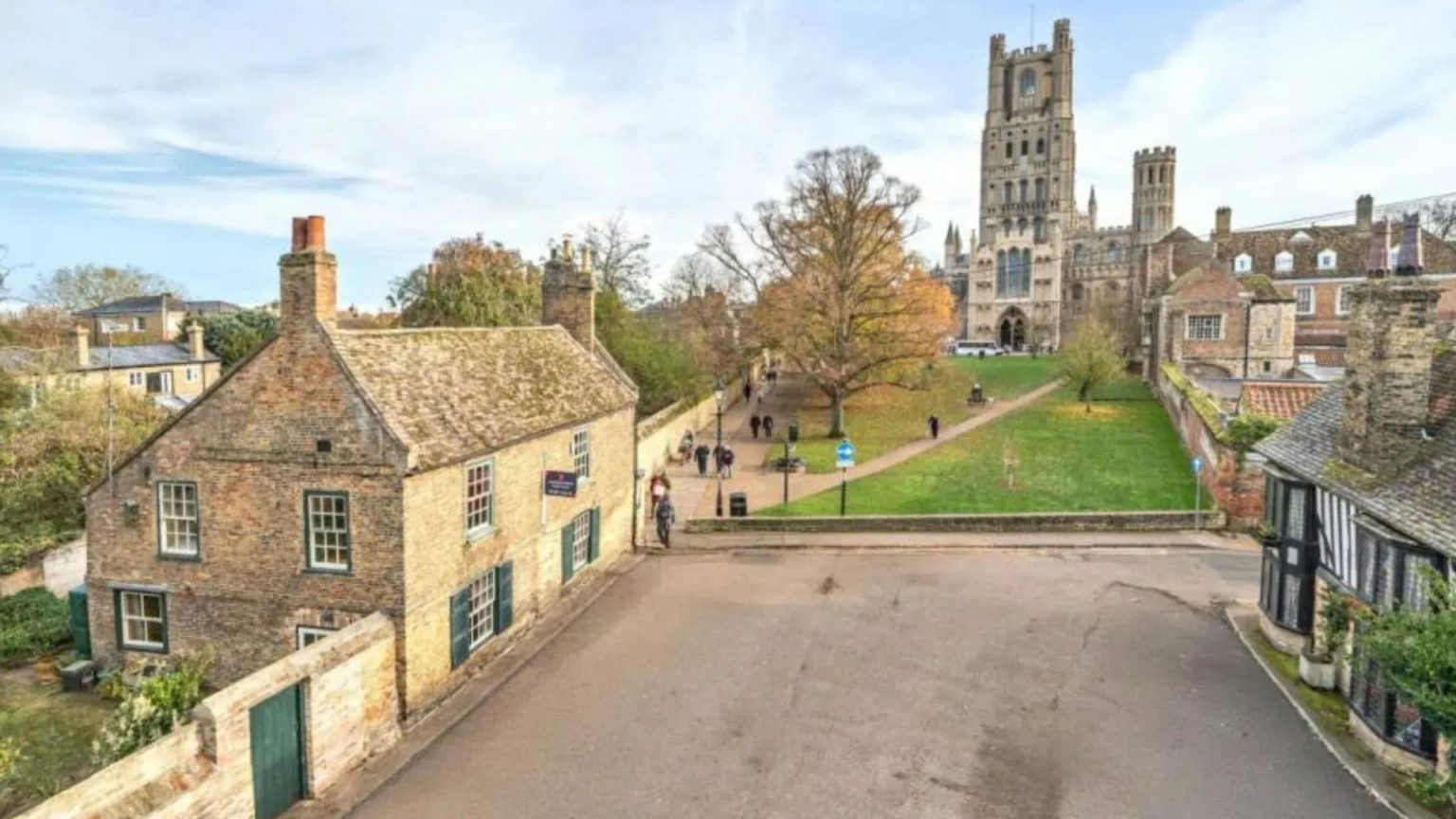The marketing of Palace Green Cottage, a four-bedroom property listed for £895,000 in Ely, Cambridgeshire, became embroiled in controversy after digitally altered images were used in its online listing. The original photographs depicted the property’s location on a street lined with parked cars, reflecting the reality of the area’s parking situation. However, the photos published by estate agent Jackson-Stops Newmarket were significantly altered, erasing the cars and the white parking bay lines. This digital manipulation created a misleading impression of the property’s surroundings, making it appear as though it was situated on a peaceful, car-free lane, rather than a busy street near Ely Cathedral. The discrepancy between the actual street scene and the edited image was stark enough to prompt a local resident to comment on the noticeable absence of the usually occupied parking bays.
The manipulated image quickly drew criticism for its lack of transparency and misrepresentation of the property’s location. Presenting an idealized, unrealistic depiction of the surroundings can mislead potential buyers regarding the true nature of the property’s setting. Jackson-Stops Newmarket responded swiftly to the criticism, acknowledging the altered image as an “error” that did not meet their standards for transparency in property marketing. The estate agent subsequently removed the misleading photograph from the listing, aiming to rectify the misrepresentation. The incident highlights the ethical considerations surrounding the use of digital manipulation in real estate marketing and the importance of presenting an accurate portrayal of a property’s environment.
Palace Green Cottage, being offered for sale for the first time in over a century, is a historically significant property. The Grade II listed building retains a wealth of period features, adding to its charm and value. These include original sash windows, herringbone brick floors, and a preserved bread oven. Constructed from Cambridgeshire buff and pink brick, the cottage boasts impressive chimney stacks, further enhancing its aesthetic appeal. The property also features a walled courtyard garden, providing a private outdoor space. Its unique location next to Palace Green in the city center offers residents stunning views of Ely Cathedral, a prominent landmark in the area. These architectural and historical details contribute significantly to the property’s asking price and its desirability among prospective buyers.
The incident surrounding the digitally altered images underscores a broader issue in real estate marketing: the tension between presenting a property in its best light and providing an honest, accurate representation of its surroundings. While enhancing images to improve lighting or color balance is generally accepted, removing significant features like parked cars crosses the line into misrepresentation. Such practices can erode trust between estate agents and potential buyers, creating a sense of skepticism about the veracity of other information presented in the listing. This case serves as a reminder that transparency and accuracy are paramount in building trust and ensuring a fair and ethical marketplace for real estate.
The anecdote about an idyllic new-build estate with high annual fees for landscaping and terrorism insurance, while seemingly unrelated, touches upon a separate but related aspect of property ownership: the hidden costs associated with certain types of properties. While the initial purchase price is a significant factor, ongoing expenses for maintenance, community services, and insurance can significantly impact the overall cost of ownership. In this instance, the £9,000 annual fee for grass cutting and terrorism insurance highlights the substantial financial commitment required beyond the initial purchase price. This reinforces the importance of considering all associated costs when evaluating a property purchase.
Ultimately, both the controversy surrounding the digitally altered photos and the anecdote about the new-build estate emphasize the importance of informed decision-making in real estate transactions. Buyers should be wary of potentially misleading marketing practices and diligently research a property’s surroundings and associated costs before making an offer. Transparency and accurate information are crucial for both buyers and sellers to ensure a fair and equitable real estate market. Furthermore, understanding the full financial implications of property ownership, including ongoing maintenance and insurance costs, is essential for making sound investment decisions.











